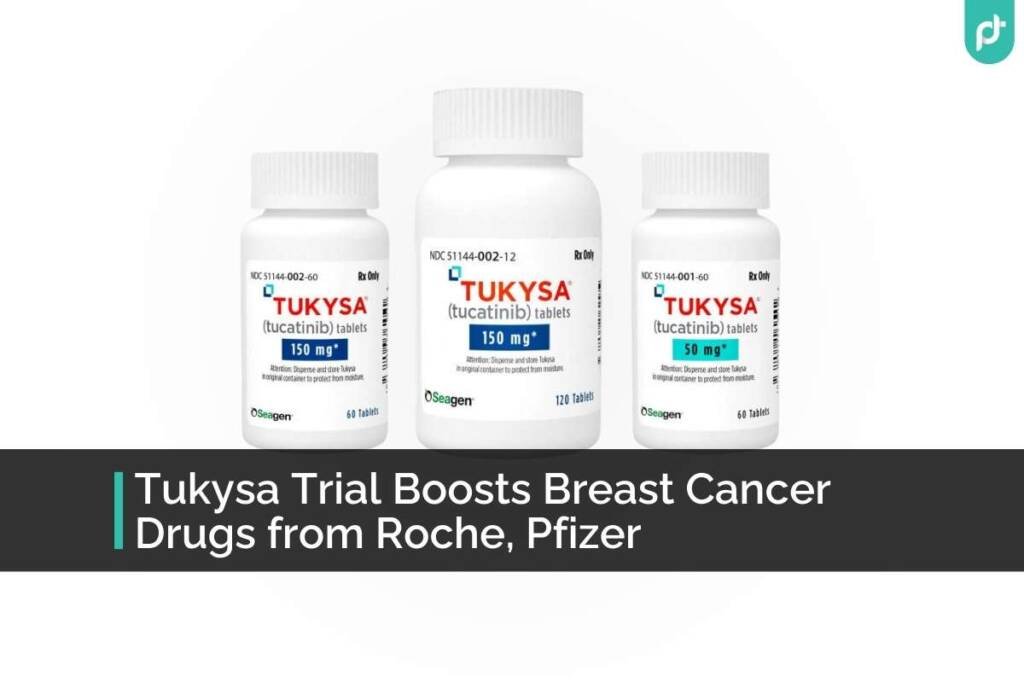In a strategic move, Pfizer has announced a hefty investment of $43 billion to acquire Seagen, with a keen focus on harnessing the Seattle biotech’s significant antibody-drug conjugate (ADC) capabilities. This acquisition is further validated by the recent triumph in a Phase III clinical trial conducted by Seagen, where their Tukysa, in combination with Roche’s Kadcyla, demonstrated impressive efficacy in patients with previously treated HER2-positive breast cancer.
The pivotal trial, known as HER2CLIMB-02, achieved its primary endpoint by showcasing a noteworthy reduction in the risk of tumor progression or death when compared to Kadcyla alone, combined with a placebo. While patient survival data are still maturing, the successful outcome underscores the potential of this therapeutic combination.
Related: Enhertu In Breast Cancer: A Breakthrough Treatment For HER2-Positive And HER2-Low
Critically, these positive results serve to mitigate the risk associated with Pfizer’s acquisition of Seagen, according to analysts at Leerink Partners. Tukysa, which gained FDA approval in 2020, has already been employed alongside trastuzumab (Herceptin) and chemotherapy to treat HER2-positive breast cancer in advanced stages. Kadcyla, functioning as an ADC, leverages Herceptin to guide a targeted chemotherapy agent to HER2-expressing cancer cells.
Though ADCs generally wield greater potency than traditional antibody drugs, they can also introduce heightened toxicity. In the case of the HER2 CLIMB-02 trial, the combo treatment exhibited a slightly higher discontinuation rate due to side effects when compared to the control group. Encouragingly, no new safety concerns emerged, as confirmed by Seagen investigators.
Related: Roche’s HER2 Powerhouse: Leading The Way In Breast Cancer Treatment
The success of the HER2 CLIMB-02 trial signifies Tukysa’s valuable contribution to enhancing the efficacy of antibody-drug conjugates. This achievement is pivotal as the landscape of breast cancer treatment becomes increasingly competitive, marking a significant advancement in the field.
Both Tukysa and Kadcyla are agents targeting HER2, and they face pressure from AstraZeneca and Daiichi Sankyo’s ADC Enhertu, which outperformed Kadcyla in a direct comparison. While Kadcyla is persevering in early-stage breast cancer treatment and geographical expansion, Tukysa sets itself apart with its ability to manage brain metastases.
Related: Maintaining Durable QOL In HER2+ Breast Cancer Patients: Trastuzumab Deruxtecan
With the Tukysa-Kadcyla tandem demonstrating a median progression-free survival (PFS) of 8.2 months in a phase 1b trial, the question arises regarding the magnitude of improvement in comparison to Enhertu’s remarkable 67% risk reduction in the Destiny-Breast03 trial. Although cross-trial comparisons must be approached cautiously due to variations in patient criteria, the success of the Tukysa-Kadcyla combination remains promising.
The implications of Tukysa’s efficacy extension to Enhertu, as well as Seagen’s own HER2 ADC disitamab vedotin, spark further intrigue. Seagen’s comprehensive development plan for Tukysa encompasses a Phase II trial (HER2CLIMB-04) evaluating Tukysa alongside Enhertu in second-line HER2-positive breast cancer, and a Phase III trial (HER2CLIMB-05) investigating Tukysa in conjunction with Herceptin and Roche’s Perjeta as a first-line maintenance regimen.
Pfizer’s substantial investment in Seagen, bolstered by these promising clinical outcomes, heralds a new chapter in the pursuit of innovative and effective HER2-positive breast cancer treatments.





























